Share
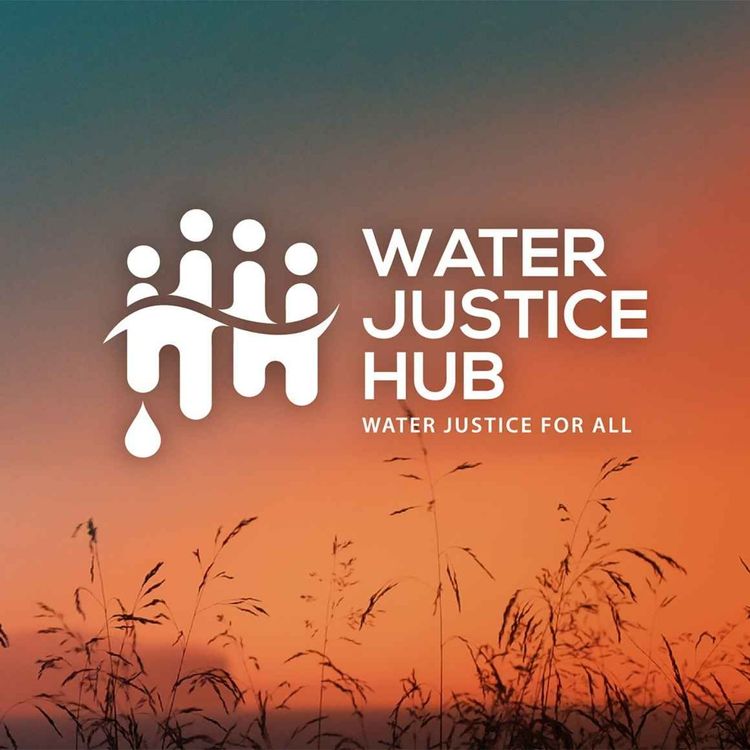
The Water Justice Podcast
The Water Crisis Is The Climate Crisis: With Professor David Hannah
On today’s episode of Riverside Chats, Quentin Grafton speaks with David Hannah, who is a Professor of Hydrology at the University of Birmingham. Professor Hannah is also the Director of the Birmingham Institute for Sustainability and Climate Action and he holds a UNESCO chair in water science. David’s work aims to understand how the water cycle works, how it’s evolving as a result of a changing climate and then using that knowledge to drive meaningful change. David describes how global warming speeds up the global water cycle, which leads to more extreme floods and droughts. He also discusses his fascinating field work in the Himalayas, blending local knowledge and new technologies to help local populations adapt to their evolving natural environment.
This podcast was edited by Michael Migali and executive produced by Quentin Grafton, Convenor of the Water Justice Hub at the Australian National University. This episode's hosts are Quentin Grafton and Safa Fanaian. Music by Serge Pavkin.
More episodes
View all episodes
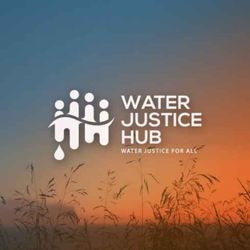
Hozaus Claire: connection to the land, water and rivers
23:58||Season 3In this episode of riverside chats, Kat Taylor speaks with Hozaus Claire, a Bunuba/Gooniyandi/Walmajarri/ Nyikina artist and community leader from the Kimberley region, and member of the Martuwarra Fitzroy River Council.Hozaus talks about his life growing up in the remote town of Fitzroy Crossing, WA, where he has gotten to know the ecosystems of the Martuwarra Fitzroy River very well. As a community leader, he enjoys teaching young people how to live off the land by hunting, fishing gathering and cooking the traditional way. Hozaus spent time in Canberra creating art depicting the Martuwarra Fitzroy River, communicating its complexities and hoping to foster a deeper respect for water systems. This podcast was edited by Michael Migali and executive produced by Quentin Grafton, Convenor of the Water Justice Hub at the Australian National University. This episode’s host was Kat Taylor. Music by Serge Pavkin.
Can we achieve SDG6? With Gabriela Sacco, Nina Lansbury, Saskia Nowicki and Sera Young
26:20||Season 3On the latest episode of the Water Justice Hub podcast, we were fortunate enough to catch up with four special guest researchers from across the globe, who were recently in our home city of Canberra attending a workshop on Drinking Water Quality. We hear from:Gabriela Sacco, the Director of the Institute of Global Dialogue and Culture of Encounter.Nina Lansbury, Associate Professor from the School of Public Health at the University of Queensland.Saskia Nowicki, Research Associate in environmental systems science from the School of Geography and the Environment at the University of Oxford.Sera Young, Professor of Anthropology and Global Health at Northwestern University in Chicago.They offered some interesting insight into how they navigate the complex, practical realities of their work, such as managing competing interests of various stakeholders and overcoming shortfalls in data collection.Our guests also share what they’ve learned from their research projects abroad and finally, we’ll take a look at how we’re tracking to meet the Sustainable Development Goals for 2030, which is ensuring the availability and sustainable management of water and sanitation for all.This podcast was edited by Michael Migali and executive produced by Quentin Grafton, Convenor of the Water Justice Hub at the Australian National University. This episode’s hosts are Safa Fanaian with voice over by Kat Taylor. Music by Serge Pavkin.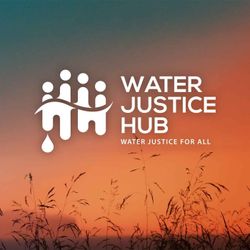
Remote Indigenous Communities, Water and Mental Health: With Professor Pamela Katic
32:59|In this episode of Riverside Chats, Quentin catches up with a former colleague of his, Dr Pamela Katic. Pamela is the Associate Professor in Economics at the Natural Resources Institute at the University of Greenwich. Pamela has travelled extensively, conducting field research in remote locations within the Amazon and in Yukon, Canada. In their chat by the river Thames in London, Pamela discussed the complex water security issues facing remote Indigenous communities, as well as their unique perspectives on the connection between the natural environment and mental health. Pamela also discusses some of the pitfalls of current irrigation technologies and practices and how they can become more effective if we better understand the broader ecosystems that they’re operating within.This podcast was edited by Michael Migali and executive produced by Quentin Grafton, Convenor of the Water Justice Hub at the Australian National University. This episode's hosts are Quentin Grafton and Safa Fanaian. Music by Serge Pavkin.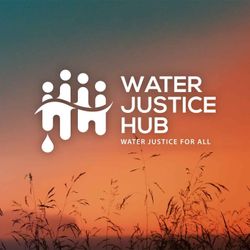
Conflicting Mandates, Self Interest and Dogma - The Problem with Global Institutions: With Asit Biswas and Cecilia Tortajada
52:52|Quentin Grafton is in Glasgow, Scotland, catching up with two prominent academics within the water space, Professor Cecilia Tortajada and Professor Asit Biswas. Professor Tortajada is from the School of Social and Environmental Sustainability at the University of Glasgow, she is a member of the OECD Initiative on Water Governance and has twice received the Research Excellence Award from the Lee Kuan Yew School of Public Policy. Professor Biswas, a ‘Distinguished Visiting Professor,’ also from the University of Glasgow, has served as a senior public official in Canada, where he received the “Person of the Year” award from the Canadian Prime Minister. Cecilia and Asit discuss the challenges of international and domestic institutions and why inefficient practices still prevail despite not delivering results. They highlight the importance of pragmatism over dogma, separating clashing mandates within institutions to create a system of checks and balances, creating models to fit reality rather than fitting reality into the ‘model’ and for policy makers in offices to experience the reality of the field for themselves.This podcast was edited by Michael Migali and executive produced by Quentin Grafton, Convenor of the Water Justice Hub at the Australian National University. This episode's hosts are Quentin Grafton and Safa Fanaian. Music by Serge Pavkin.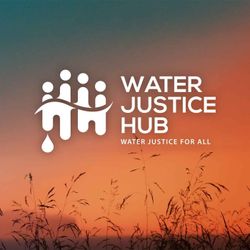
Everything is Connected: With Professor Robert Costanza and Associate Professor Ida Kubiszewski
41:14|On today’s episode of Riverside Chats, Host Quentin Grafton is in London, meeting with Professor Robert Costanza, an ecological economist from the University College London, and Ida Kubiszewski, Associate Professor for Global Prosperity, also from University College London. Their work aims to understand how our economic social systems interact with the global water cycle and how such an interdependent relationship can be best managed. They discuss the connectivity of water and ecosystems and the centrality of water to climate change. They also delve into the health of the Thames, the unique ways in which it’s used by the population, as well as what makes it such a remarkable river.This podcast was edited by Michael Migali and executive produced by Quentin Grafton, Convenor of the Water Justice Hub at the Australian National University. This episode's hosts are Quentin Grafton and Safa Fanaian. Music by Serge Pavkin.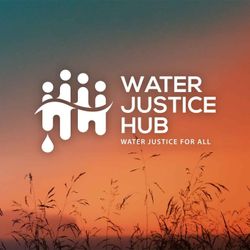
Towards A Common Understanding of Water Justice - With Professor Joyeeta Gupta
40:04|Safa and Quentin are very pleased to be joined with Joyeeta Gupta, Professor of Environment and Development in the Global South at the University of Amsterdam and Professor of Law and Policy in Water Resources and Environment at IHE Delft Institute for Water Education. Professor Gupta is also co-chair of the Earth Commission and she is the latest winner of the the Spinoza Prize, the highest scientific award within the Netherlands. Professor Gupta offers her perspective on the relationship between water security and justice, while discussing the broader structural barriers to progress and why the topic of food should be central to such conversations.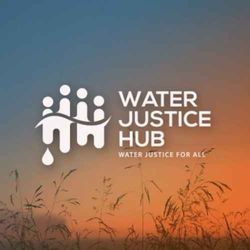
From Mar del Plata to New York City: The UN 2023 Water Conference
42:56|The Water Justice Hub's Quentin Grafton and Safa Fanaian attended the UN Water Conference in New York in March 2023. This second UN water conference sought to unite the world around the water crisis and accelerate action towards water and sanitation for all. Three guests share their reflections about the conference.Guests:Professor Robert Hope, Professor of Water Policy, University of OxfordDr. Nate Matthews, CEO of the Global Resilience PartnershipJacqui Remond is the lead on integral ecology at the Australian Catholic University and a co-founder of the Laudato Si movementThis podcast was edited by Michael Migali and executive produced by Quentin Grafton, Convenor of the Water Justice Hub at the Australian National University. This episode's hosts are Quentin Grafton and Safa Fanaian.Donate to the Water Justice Hub: https://www.waterjusticehub.org/the-water-justice-and-security-endowment-fund/
The Story of Australia's 2022 Floods
34:36|This episode of the Water Justice Podcast is a collection of stories, recounting events from around regional Australia which received flooding throughout the Murray Darling Basin across 2022 and into 2023. New South Wales, Victoria, and South Australia experienced severe flooding in the late spring months in a La Nina event. Recorded at the end of the 2023-2023 Australian summer, five people from different areas along the flooded regions provide their stories from this tragedy. These stories cover how floods have impacted them and their communities as well as their thoughts on how we can learn from these events. Australia's flooding can be a contentious topic and these experiences don't necessarily reflect the thoughts of the Water Justice Hub, but they do account for how people are left feeling in the wake of a disaster like this.GuestsPrue Milgate: Agri-industry advocate, Grain and Livestock Farmer in Serpentine, who received flooding downstream from the Loddon RiverSimone Bailey: Mayor of the Mid Murray council, an area that received flooding from the Murray RiverDallas Tout: Mayor of Wagga Wagga, which received flooding from the Murrumbidgee RiverBill Twigg: Regenerative Agricultural Sheep Farmer who received flooding from the Loddon RiverPaul Haw: First Nations Cultural Heritage Museum caretaker and Local to Boort, a lakeside town that received flooding from the Loddon RiverThis Podcast is hosted by Kat Taylor and Produced by Tim Whiffen of Whimsy Productions for Quentin Grafton, Convenor of the Water Justice Hub, UNESCO Chair in Water Economics and Transboundary Water Governance at the Australian National University.Donate to the Water Justice Hub: https://www.waterjusticehub.org/the-water-justice-and-security-endowment-fund/